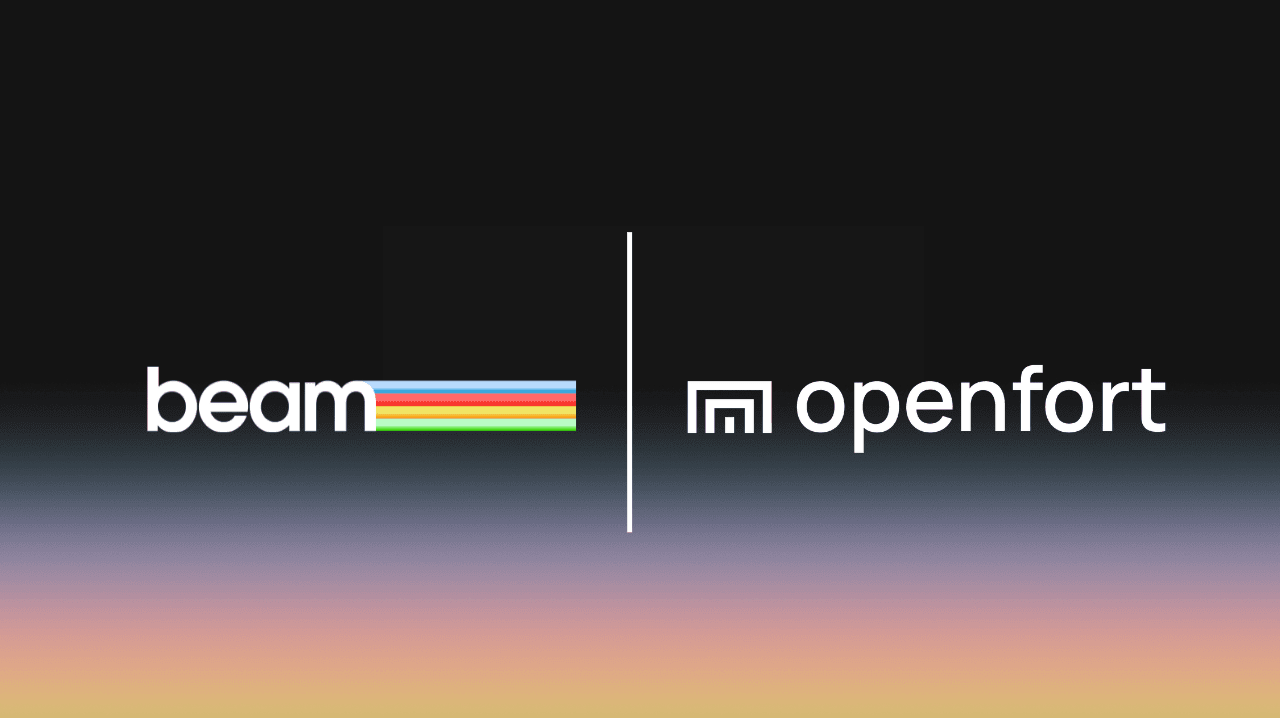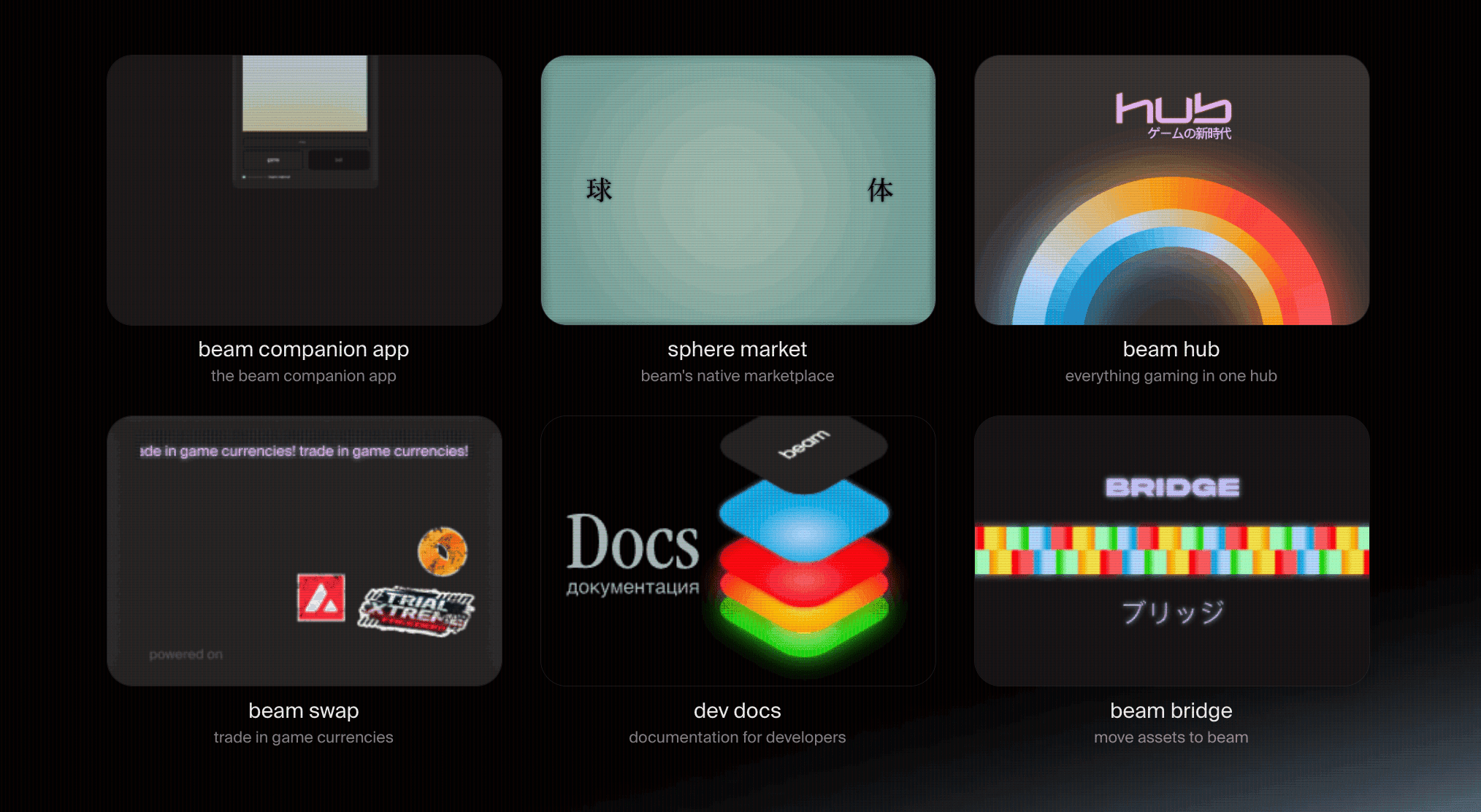
Merit Circle's Beam, a pioneering Gaming DAO, and Openfort, a game-centric infraestructure solution, are set to revolutionize the blockchain gaming arena with their emphasis on interoperability, Web3 gaming, and seamless integration of blockchain technology. The partnership is aimed at creating a comprehensive, interconnected gaming ecosystem that benefits both game developers and players.
| Challenges | Solutions |
|---|---|
| - Limited cross-game interoperability and non-player centric environments in traditional gaming platforms. - Current blockchain gaming platforms lack a quality user experience and are not specifically tailored for gaming needs. - Most users of larger platforms do not derive benefits from generic wallets. | - Merit Circle leverages Openfort's technology to build a community-focused ecosystem with high cross-game interoperability. - Openfort's technology addresses these issues by offering a superior, gaming-focused solution. - Openfort provides a more personalized and rewarding wallet experience for players. |
What makes Openfort stand out?
Openfort distinguishes itself through its focus on the development of SDKs and APIs, contrasting the prevailing UI-based wallets in the industry. This approach allows for a more customized and developer-friendly environment. Additionally, Openfort's commitment to innovating and advancing the concept of account abstraction for gaming presents new possibilities for developers, making it a unique proposition in the market.
| Alternative solutions and why the partner chose Openfort | |
|---|---|
| Stardust | While Stardust offers a gaming kit, their solution has a high vendor lock and Merit Circle would be limited to new innovations. |
| Sequence | Sequence provides a wallet service for games but it locks you into their ecosystem and would have been more complex to integrate with what Merit Circle has in mind. |
| Web3auth | Web3auth specializes in MPC tech to authenticate users, but it’s not aligned with the gaming business model and comes in expensive at certain volumes. |
| Magic Link | While Magic Link allows easy login through Amazon KMS, it doesn't offer deep integration with smart accounts and transaction management. |
| ImmutableX Passport | Immutable Passport offers identity services on the IMX ecosystem, but it does on the other end lock into the UI of Immutable and need to be on the ecosystem. |
| Why is Openfort better? | 1. Openfort provides a superior, gaming-focused platform tailored to the needs of the gaming community. 2. Openfort's wallet technology offers more personalized experiences and rewards for players. 3. Openfort's deep understanding of blockchain technology and the needs of gaming ecosystem’s makes it an integral partner for Merit Circle. 4. Openfort's innovative approach to smart accounts, player simplicity, and developer first sets them apart. |
"The capacity of Openfort to become a true partner in our developer cycle and integrations is invaluable. They are not just a technology provider but an integral part of our journey towards onboarding more gamers into Web3 experiences,” - Brandon, CTO of Merit Circle.

Let’s get technical
Diving deeper into the technicalities, Merit Circle and Openfort are leveraging advanced technology to build an ecosystem that emphasizes player-centric design, interoperability, and rewarding experiences. The $BEAM token, accessible and usable across different games, adds to the inclusive nature of this gaming ecosystem.
The interoperability of different games within the ecosystem is a key technical advancement, along with the ability to use their own smart contracts and integrate with existing products like Sphere. Through these innovations, this partnership promises a new era of digital gaming experiences.
Smart Accounts
What it is: By incorporating smart contract wallets, or 'account abstraction' (following ERC4337), you can offer your users a more interactive and richer gaming experience.
Why it's important for games: Beam utilizes smart contracts from Openfort, which provide you with the tools to offer your users greater flexibility and security with their accounts. This means, developers will be able to choose across a gull range of wallet configurations like Token Bound Accounts (ERC6551), Social Recovery Accounts, and more.
Multi-Chain Account Support
What it is: Beam has integrated Openfort's multi-chain account support, allowing users to manage multiple blockchain accounts seamlessly.
Why it's important for games: In a gaming ecosystem where different games may operate on different blockchains, multi-chain support is crucial. It allows the ecosystem to expand into new blockchain as they see fit, while mantaining the same support and experience.
Gas Sponsorship and Policy Rules
What it is: Openfort's gas sponsorship feature has been adopted by Beam to subsidize transaction costs for the users.
Why it's important for games: Having to have tokens to pay for transactions can be a barrier to entry for many gamers. By granularly sponsoring these fees, Beam makes it more accessible for users to engage in transactions, such as buying in-game items or transferring assets across accounts/,marketplaces. All by using the native token $Beam.
Invisible Blockchain Interactions
What it is: This feature eliminates the need for constant pop-ups during blockchain interactions, offering a smoother gaming experience.
Why it's important for games: Constant pop-ups can be disruptive and annoying, especially in fast-paced games. This feature enhances user engagement and keeps gamers focused on the gameplay rather than administrative tasks. By creating temporary keys the gaming ecosystem has the authorization to interact on behalf of the users for a limited set of variables.
What future features will Openfort support?
-
Release of the Beam companion app. Allowing players features like transferring assets, buying / listing on Beam marketplace through the app and asset swaps. The app will also include Vaults, which will be a self-custodial account for users to interact with their assets.
-
Onramp/Offramp for games. Allowing game devs to incorporate FIAT payments to their game, either to aquire more game tokens or in-game assets.
-
Onchain subscriptions. Allowing game devs to create subscriptions for their products and other paying mechanisms.